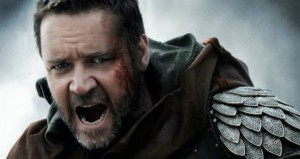Robin Hood: Libertarian Hero
 Maura Pennington, writing for Forbes, looks at the libertarian core of the famous tale.
Maura Pennington, writing for Forbes, looks at the libertarian core of the famous tale.
She writes, in part:
All Robin Hoods are at odds with that overreaching state. In Walt Disney’s 1973 animated feature, Robin Hood offers hope in the face of tyranny. He robs to return hard-working people’s tax money. He fights poverty inflicted by the state. He doesn’t dole out pouches of gold swiped from millionaires and billionaires, no strings attached. He gives them back what is rightfully theirs because they themselves paid it in the first place. He does it because he cares, but there is another motivation behind all his thieving—he finds it fun.
After a run-in with the Sheriff of Nottingham and his men, the animated Robin scoffs at the seriousness of being shot at, saying: “That was just a bit of a lark, Little John.” Most Robin Hoods, minus the most ostensibly libertarian Russell Crowe, have a sense of humor. They like what they do and they like being good at it. An archery contest is a staple in the legend because Robin Hood has an unmatched skill with the bow. Yet his interest in entering has little to do with the poor or remedying wealth disparities. He has an impressive talent and he wants to show it off and, in some versions, gain the attention of the lovely Maid Marian. In other words, Robin Hood is a selfish hero…
…The spirit of Robin Hood is not one that fits with state dependency. An oft-repeated line in the BBC television series that ran from 2006-2009 is: “Everything’s a choice, everything we do.” No matter how benevolent and generous, Robin Hood would hardly vote for an agenda that eliminates a free person’s ability to choose for himself. Robin Hood doesn’t support enforced equality of position and circumstance. He merely fights for recognition of innate equality and the liberty to pursue position and circumstance at will. It’s not for nothing that his legend coincides with the Magna Carta.

